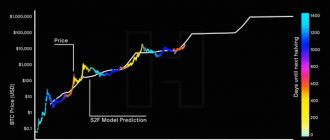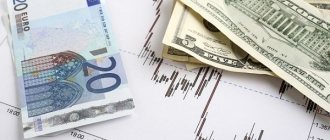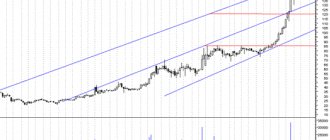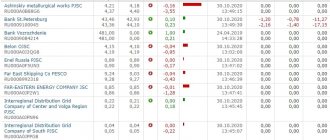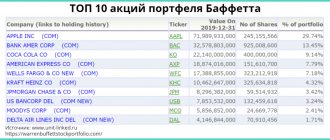Beginning investors and all those who are just getting acquainted with the world of financial markets are faced with such features of the behavior of shares and their prices in exchange trading, which in some cases defy logical explanation or are simply incomprehensible.
In reality, this is partly true, and such “cunning” of the market cannot be explained by unambiguous definitions, as, for example, in mathematics. The thing is that a share as a security has several properties that one way or another manifest themselves on the stock market in the form of price jumps up or down.
The main factors that determine how much a particular stock or bond is currently worth is its connection with both internal causes and events occurring within the issuing company (that is, who issued the share for circulation on the stock market), and with external ones. Such as, for example, events in politics and economics, the fear of some investors and the greed of others. All this together determines the rather complex picture that develops under the influence of diverse and sometimes hidden from the eyes of an ordinary person reasons. A typical mistake of novice investors and traders is that they try to immediately comprehend all the mechanisms of stock pricing in the market, which, as practice shows, is not always easy and also requires some analytical experience and knowledge. In general, in order to invest in the market and make money on it, it is best for beginners to simply know the main reasons why the stock price is such, what factors are most important, and build their trading or investment strategy based on this.
This article will talk about the seven main reasons that cause stocks to rise in the market, and the situations in which you should be especially careful when you see a rising price chart, since each rise has its own reasons and may not always be “real” or objective.
What is the par value of a share
The creation of a joint stock company is necessarily accompanied by the issue of shares - an issue. It is easy to determine their nominal price by dividing the size of the authorized capital by the number of issued securities. Owning assets generates income in the form of dividends. Profit may depend on exchange rate differences when buying and selling.
What determines the further formation of the share price?
After issue, shares are traded on the stock exchange. The market rate depends on how successful their implementation is. Assets can be sold above or below their nominal value under the influence of supply and demand - the main regulators of the market.
Hurry up to take advantage of the doubling of the tax deduction until December 31, 2022.
Initial stock price assessment and IPO
The initial placement of a company's securities on the stock market is called an Initial Public Offering. The success of the IPO determines where the stock price will go. Specially hired intermediaries - underwriters - assess the condition of the company, its financial statements, development prospects and form the initial value of assets for sale on the stock exchange.
It is beneficial for intermediaries to lower the initial cost in order to subsequently make money on the growth of quotes. There are many examples of how participation in an IPO raised a company's quotes several times.
List of factors influencing stock prices on the stock exchange
The market value of securities on the stock exchange changes daily. Quotes depend on supply and demand. Understanding the reasons influencing the exchange rate will allow the investor to increase profits.
Here are the main factors on which the market value depends:
- Investor expectations. Since investors create demand for securities, their forecasts are decisive. There are buyers - the price rises, demand decreases - quotes fall. The rate will rise against the backdrop of favorable investor expectations, as buyers seek to invest in successful enterprises. Bad news is why stocks fall. They prefer to get rid of bad assets.
- The real price of the company. The actual value of an enterprise is not always identical to investors' expectations. It is assessed by specific indicators - profit, dynamics of production or sales volumes, various evaluation coefficients. A successful company guarantees shareholders the payment of dividends and growth in stock prices.
These factors interact to form the market price of the company's shares. If the real state of affairs meets or exceeds investors' expectations, the rate will rise, otherwise quotes will decline. It is no coincidence that significant fluctuations in the exchange rate depend on the publication of financial statements in the public domain, which occurs once a quarter.
In addition to the two most important factors, the price of a company’s securities is influenced by:
- global processes in the world economy;
- individual political events in the country and in the world;
- financial policy of a particular state;
- industry situation;
- company reputation.

